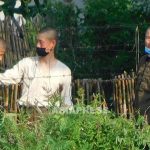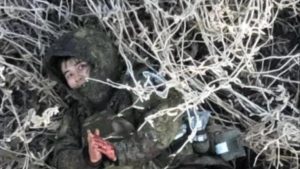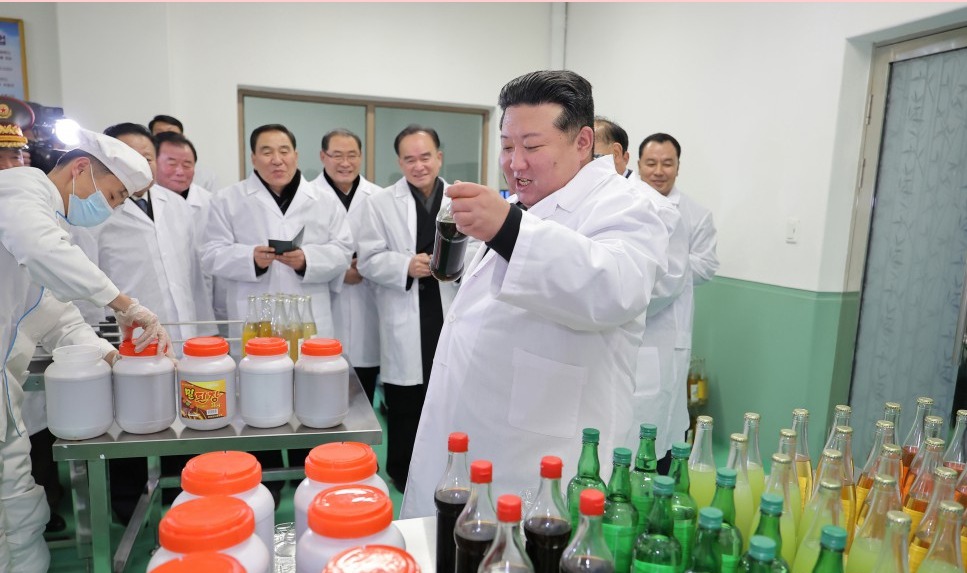
Recently, in North Korea, as the 'enterprise responsibility management system' is being actively promoted, corporate autonomy is expanding, and the behavior of donju who exploit loopholes in the system to increase their wealth is spreading. Through information gleaned from inside the country, we examine the specific methods by which they make money and analyze who these emerging figures are under the new economic order. (JEON Sung-jun / KANG Ji-won)
The Rise and Fall of the New Wealthy Class 'Donju' in the Kim Jong-un Era (1) The Donju's Market Debut: Prelude to a Great Collapse
◆ The System is Complete, but Funds are Lacking
Let's summarize the series so far. Using the COVID-19 pandemic as an opportunity, the Kim Jong-un regime implemented powerful state-led economic restructuring. The core of this was strengthening state control over trade, pushing for domestic production of light industrial consumer goods that had relied on imports from China, and building a state distribution network centered on commercial management offices and state-run stores. The authorities introduced the 'enterprise responsibility management system' to achieve domestic production of consumer goods and increase corporate productivity and efficiency.
It looks quite plausible, but in reality, there's a fatal weakness. While the institutional framework is complete, the state lacks the driving force to operate its funds.
Reporting Partner B, an ASIAPRESS reporting partner living in Ryanggang Province, reported in June:
"To buy the necessary materials, you need funds, and the produced goods need to go to markets or individuals, or units (enterprises) that can pay money, but that's not happening... The structure is good, but it's difficult for actual money to benefit workers."
B says donju are exploiting exactly this point to make money.
"Even if they produce with difficulty, (the enterprise) needs money to purchase the products, but donju are providing money in the middle and making money as middlemen."
◆ Money-Making Methods Seen Through 'Hoe Trading'
Let's look at a specific case. Regarding what's happening at a factory in Hyesan City, Ryanggang Province, Reporting Partner C reported the following in June:
"These days it's weeding season, so OO Factory is producing hoes and selling them to farms, but if you know the inside story, donju are making money. They order hoes that cost 1,200 won each from the factory and sell them to farms for 2,800 won. They say they'll receive payment in fall with corn, potatoes, and such. The factory sends them ready to use, with handles attached to the hoes."
Looking at the structure of this transaction in more detail:
Farms need hoes but have no money. Factories know there's demand for hoes but lack production funds, and even if they produce, they know payment from farms will be delayed until fall, so they can't readily start production. This is where donju intervene. They confirm the quantity of hoes needed by farms, place orders with factories, and then provide the funds needed for production. They then receive the completed hoes and deliver them to farms.
Farms use these hoes for farming and pay donju with food crops in fall. Donju earn enormous profits as compensation for providing agricultural tools at the right time and accepting credit transactions. They sell hoes procured for 1,200 won at 2,800 won, earning over 130% profit in six months.
◆ Donju Who Help the National Economy

The role of donju examined above, benefits all participants. Stalled factories can operate, and farms can secure necessary agricultural tools at the right time to increase farming efficiency. Workers and farm workers can receive wages by creating value, and as a result, factories and farms can each fulfill their state plans. Though no one intended it, the role of donju connects to activating the national economy.
Of course, donju gains the biggest profit in the process. However, C says not just anyone with money can do this.
"Not just anyone does this. It's done in consultation with factory executives. Not just OO Factory, but other local factories also produce on an order basis, and donju there are making money using enterprise names in this way."
◆ 'Legal' Donju with Status
What's notable is that such activities are taking place within 'legal' boundaries, not at the individual level. C says:
"Among the donju here now, there seems to be no one not registered with enterprises or units. They register as managers or members in accordance with policy, even go to work, and make money while having status by maintaining appearances."
C also reported that "enterprise managers, commercial management office supply department members - donju have taken positions in all these (profitable) positions, and there are also cadre family members."
Donju who register with official state agencies to secure legal status and use that signboard to develop business no longer need to operate in the shadows. And many of these are existing cadre family members or figures connected to the power elite. B worries this phenomenon could lead to polarization.
"Donju are using state policies to make money while having jobs, so people who live well live even better, while those without can only work as day laborers."
◆ The Emergence of New Donju
Over five installments, we've examined donju, newly emerging under the current economic order of the Kim Jong-un regime. This raises the question: can we really call these the same donju as before?
For three reasons, these can be seen as a new type of donju different from before - that is, a New Donju class.
First, change in character. Past donju were 'commercial capitalists' who grew naturally with market formation, but now they've transformed into 'power-affiliated capitalists' who either collude with power or are power themselves.
Second, their activity methods have changed. In the past, they participated in relatively free markets and built wealth through individual skill, but now they hold positions in state agencies and generate profits within the framework of the state economy.
Third, their relationship with the state has shifted. In the past, they played zero-sum games with the state over interests, but now they've formed a mutually dependent win-win structure.
◆ From Zero-Sum to Win-Win: Transition to Mutual Benefit Structure
The past relationship between state and donju was competitive over economic leadership and profits from markets. The state controlled threateningly growing donju through oppression and purges, while donju harbored resentment against state tyranny. Donju and the state were in an antagonistic structure.
But now a completely different structure has formed. It can be called a transition to a mutual benefit structure where the state depends on donju and donju collaborate with the state. Power-affiliated donju legally make money within the state system, while the cash-strapped state uses donju capital to develop the economy.
For the regime, it's bound in a relationship that's not easily severed. However, this structure could be a double-edged sword for the Kim Jong-un regime. While borrowing the power of New Donju forces for economic development, if they become too strong, they could emerge again as political threat factors.
How long the 'honeymoon' between the Kim Jong-un regime and New Donju forces will continue is unknown. (End of Series)
※ ASIAPRESS communicates with its reporting partners through Chinese cell phones smuggled into North Korea.
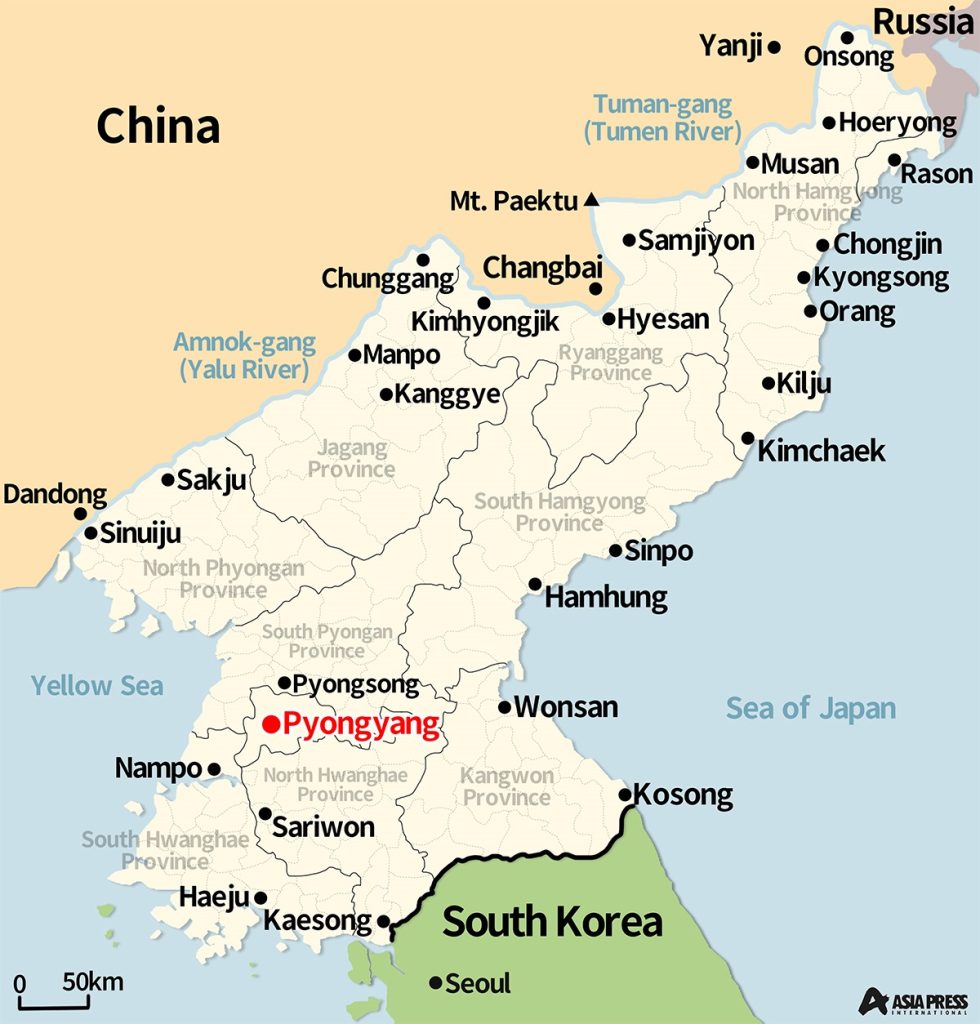
- <Inside N. Korea> Long-Standing Rural Mobilization Practice of 'Total Mobilization' Support Has Disappeared - Farms Also Changing with Increased Burden: "Won't Accept Mobilized Workers if Possible"
- <Inside N. Korea>'Show Me What's in Your Phone' - A Student Souple Resisted the Overly Strict Inspection, But...
- <North Korea Special>What is the Reality of Kim Jong-un's Agricultural Policy Reform? (1) "Collective" Disappears from Farms Major Revisions to Agricultural Regulations
- <Inside N. Korea> Are Cooperative Farms Being Nationalized? Local Confirmation of Name Changes - Potential Major Shift in Agricultural Land Ownership - Why Are "Farmers Unconcerned"?
- <Inside N. Korea> Surveillance and Control of Mobile Phones Intensifies: Information Extracted During Repairs, Daily Photography Monitored
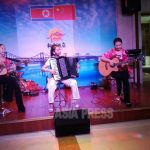

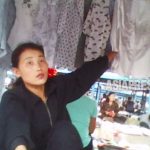

![[Video Report] Fleeing back alley vendors by cracking down](https://www.asiapress.org/rimjin-gang/wp-content/uploads/2018/07/201106-07NK_pyeongyang_gu_0-150x150.jpg)
